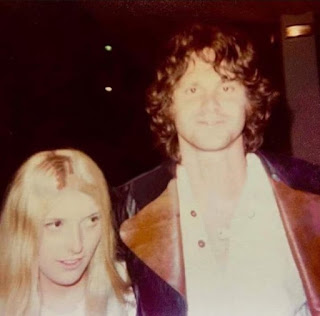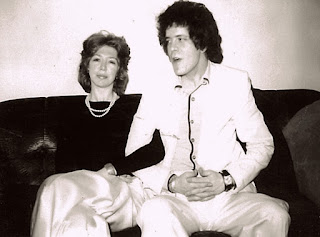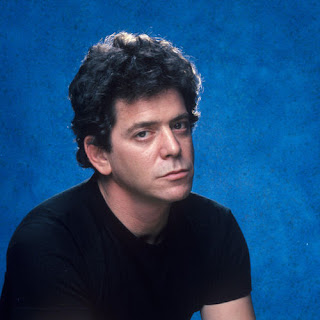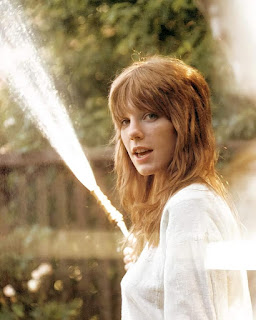Before the End: Searching for Jim Morrison, documentary directed by Jeff Finn. Release date: January 13, 2025 on Apple TV.
Before the End: Searching for Jim Morrison is less an excavation of truth than an exercise in indulgence, a quixotic pilgrimage through the mists of conspiracy and nostalgia. Directed by Jeff Finn, the documentary styles itself as an investigative probe into the final days of The Doors' frontman, but in reality, it is more séance than scholarship. It toys with the well-worn whispers of Morrison faking his death without the burden of serious evidence. Finn and his parade of interviewees seem convinced that the "official story" is somehow suspect, yet they produce little more than speculative embroidery on an already rich tapestry of myth. To his credit, Finn unearths rare archival material and interviews that offer a glimpse into Morrison as a man, not just a spectral figure in rock 'n' roll lore.
But where the documentary might have explored Morrison's literary ambitions, his existential unraveling, or the paradox of his self-destructive genius, it instead opts for the well-trodden path of counter-narratives that fail to hold up under scrutiny. The introduction of a shadowy "Mr. X," hinted to be Morrison himself is laughable because his name is Frank Wagner and he's younger than Morrison. Critics seem divided, with some lauding Finn's passion and others dismissing the documentary as a hallucinatory echo chamber. Jonita Davis of The Black C.A.P.E. magazine acknowledges its compelling storytelling, while audience reviews on Rotten Tomatoes skew toward exasperation, one viewer branding it "filled with innuendo, half-baked theories and outright fiction." Before the End is not an exposé but a testament to our inability to let our icons rest. This documentary does little but add another layer of fog to a legend that scarcely needs it.
Jeff Finn: I think Oliver Stone’s a brilliant filmmaker: JFK, Natural Born Killers. I think his documentary work on Kennedy is amazing. But that brilliance is not displayed in The Doors. I was just so disappointed because it just clearly presented a one-dimensional view of Jim Morrison as this dark, narcissistic, self-absorbed asshole. And that’s not to say Jim didn’t have his asshole-ish moments. Of course, he did. We all have a dark side. I was doing street interviews in Virginia, outside the library Jim went to as a child. One young man replied, “He was an asshole.” And he knew that from the Oliver Stone movie. So, I’ve tried to do damage control regarding Jim’s legacy from the fallout of that biopic. Everybody has their version of Jim. The notion of Jim as an introvert, as being neurodivergent is not what we generally think of Jim Morrison. I want people to know the Jim that Gayle Enochs, one of his lovers, knew. A man who drank wine and read poetry. A contrast to this rock god. Where are The Doors of today? Why people today aren’t rising up and forming bands the way it was in the late 60s and protesting? I’m probably unaware of them, but I keep my ear to the ground and haven’t seen anything. It could be just as Jim said that it was an incredible springtime, that moment in the late sixties, and it couldn’t be replicated. Source: bandsaboutmovies.com
“I’m most concerned with compassion and happiness these days. I know things that impede happiness; drugs impede it, tension impedes it. People just don’t want to believe there’s any integrity. They’re always looking for some really ugly little thing. I think drugs are the single worst, terrible thing. And if there was any single thing that I thought would be effective to stop people from dealing in drugs and taking them I would do it. However I don’t think there is, apart from telling people to use them with caution. I find self-destructive people very boring. I would like to think that I’m not one of them.” —Lou Reed, interview for BBC Radio 1 (June 5, 1980)
It took years for The Velvet Underground to be understood. Most people caught on with the rise of alternative rock in the ‘90s, 30 years later. Now matter how bad, low, worthless someone feels there is Lou saying: 'I find it hard to believe you don't know, the beauty you are...' You are being told how, despite what you feel, that you are valued and loved. And Reed pulls that trick again and again in his solo work. And the fans of John Cale must know it’s hard to imagine The Velvet Underground commercially successful with Cale staying in the band longer. If they’d delivered another album like White Light/White Heat there’s no way they'd make the jump to Atlantic from Verve.
MGM kicked the Velvet Underground off the label around the beginning of 1970 as part of its infamous "purge" of artists who supposedly advocated taking drugs. In November 1970 Mike Curb announced the termination of the contracts of eighteen bands that "advocate for drug use." In a December 1970 Rolling Stone news item, an MGM rep claimed that "The cuts were made partly to do with the drug scene—like maybe a third of them had to do with drug reasons. The others were dropped because they weren't selling." Certainly the Velvet Underground would have been at the top of the drug purge list. Sterling Morrison thought so, telling Mix magazine that Curb "wanted to get rid of the controversial bands, including the low-selling Velvets."
Despite of the chronic painting of Lou Reed as the miscreant in his fallout with John Cale and later with Robert Quine, the reality is in fact quite different. In White Light/White Heat: The Velvet Underground Day By Day by Richie Unterberger, Michael Carlucci, longtime friend Lou Reed's guitarist Robert Quine said: "Lou told Quine that the reason why he had to get rid of John Cale in The Velvet Underground was Cale's ideas were just too out there," says Carlucci. "Cale had some really wacky ideas. He wanted to record the next album with the amplifiers underwater, and Lou just couldn't stand it." Cale's autobiography, What's Welsh for Zen?, which was written in collaboration with Victor Bockris is a clear example of one-side reporting. After the dissolution of The Velvets, Sterling Morrison explained that Cale could be also a hard pill: “People talk about Lou, but John was also truly difficult to work with. Once we were doing “Pale Blue Eyes,” which is a quiet song. I’m playing the solo, which is also quiet, and in the middle of my solo, he purposely steps on the button that turns on my distorter. It’s a Vox distorter, so all of a sudden there’s this blast of sound distorted and three times louder than all the rest. John looks at me like I’m the crazy one, turns it off, and then kicks it! I look over at Lou and we’re both going, OK, what the hell?! But if I had done that to him he would’ve had a stroke.”
John Cale obsessively blames Lou Reed of the acrimonious reunion of The Velvet Underground in 1993, with a great deal of jealousy. In What's Welsh for Zen? Cale whines about Reed to no end: "We supported U2 for Swiss stadium dates. As soon as we did that we were no longer the focus of attention and Lou could not bear the fact that he was a small fish in a big pond. Everybody else was having a great time, U2 were fun people to be around. Eden and Rise joined the tour in Switzerland. Rise was very worried and tried to understand what was going on between Lou and me, via Sylvia, which was a big mistake. One afternoon in the first week I was sitting around with a bass riff and Lou started playing guitar through this echo machine he had that was just making gorgeous noise. It was floating around in a miasma and then he started singing. I asked 'What did you say? You said "coyote"?' He said, 'Yeah.' So that song got done. And I expected that when we got out on the road we'd start trying new songs. In the middle of it all, I brought up this thing about publishing. All of a sudden Lou stopped the rehearsal, went outside and got on the phone. Sylvia showed up and came up to me and said, 'You can't talk like that to Lou. If you do, you're going to be very disappointed.' 'This is band business,' I said, 'are you a member of the band? You're not, are you? Right, so why don't you stay out of it?' She said, 'I manage Lou Reed.' That was a dead end. We knew we would attract a lot of ambulance chasers, people who wanted to see us fail. I read an article that said, 'There are some bands who shouldn't even think about re-forming.' We were one of them.
Lou was trying to control everything and I knew a storm was coming. One night in Italy, I was doing 'Waiting for the Man' with a huge orchestral introduction, and I was trying to give them the tempo from the piano, but I was too far away. Lou went and told my tech to turn the piano off. At that point I was ready to knock his teeth down his throat. He was getting stranger and I couldn't deal with that. As soon as the tour was over, Lou was completely lost. I looked at him on the plane back from England to the US, and I realized: this guy is empty. He does not know where to draw the line. He's completely adrift. MTV wanted the Velvet Underground as part of their series of 'Unplugged'. Lou was insisting that he had to produce the 'Unplugged' album. 'I'm the only one who can produce the VU,' he said. I pointed out that we could have Chris Thomas or George Martin. Lou likes to obsess over things. I have different production values, in that Lou will go for the audiophile situation and I will go for the excitement. Everybody left Lou alone and he was very quiet, saying only, 'I must produce.' 'Absolutely not,' I replied. That night I dreamed he did not drive back to Manhattan; he swam away, just drifted off into the wild blue yonder and drowned. The thing about being a star is it's so one-sided that it's corrosive.
Nico, for instance, was really in need of being completed as an artist and at the same time she could hold that grandiose position of being a star. Lou attempted to do the same, but he wasn't truly elegant enough in his demeanour to pull it off. People laugh at Lou a lot, but the thing is, Lou doesn't know when he's funny. He can be absolutely hysterical and have you rolling on the floor grasping your stomach, begging him to stop, and he still doesn't know what's going on. The point is, I don't think that Lou would like it if you told him. Lou and Sylvia had earlier insisted that the reunion tour would only happen if everyone refused to cooperate with Victor Bockris's work on his Lou Reed biography. And now they demanded that the mixing and production of any Velvet Underground recordings be Lou's domain. To me, if he did not want our input, fine, he would not get it. Certainly our only reason to refuse him was our conviction that we were best served by an outside ear. As a solo performer, I had been earning an income the equivalent of what we each could have expected from the reunion tour. What attracted me to the reunion tour, therefore, had not been the financial bonuses that were on offer, but the artistic stimulus of recreating the still uncompromised values of the original entity.
The final stroke in this conflict was a fax Lou wrote Moe in reply to a gentle note from her suggesting another producer. Moe told me it said something like, 'Moe, of course your drums sounded great because I made them sound great. John of course doesn't realize that, because his viola never sounded better because I picked the amplifiers and the PA system.' Now I wanted to say to him, 'While you were making holes in your arm, Maureen was raising her children, so fuck you! And as far as making remarks about my knowledge of recording and production, I've been known for producing people and I've been a successful at it, so I'd be careful if you're accusing me of not knowing what goes on in studios too, because I have my own studio that's fairly well equipped and I know what I'm doing down there.' So I said, 'If you don't stop doing this, you're not going to have me as a friend anymore.'
Moe called me up again and said, 'I just got a very nice fax from Sylvia.' I saw red. Yeah, what does it say?' 'Well, it says, "John's a musician, don't listen to him." The resentment I felt at the end of the day was the same I had felt throughout the years. The situation with him and Sylvia just went on and on like that. I don't want to see Lou and I don't want to talk to him and I don't want to hear anything about him. I went through the roof. My subsequent letter to him was intended to purge him of even the slightest doubt of what I saw as his motives, total control. Moe could not have known how deeply offended I was by the meanness of his tone. I was not going to forgive him again. So I wrote Lou a nine-page fax that I knew he wouldn't get up from and he hasn't. There were many blow-ups. I'm sure there will be many more. The fax machine should have been taken away from Lou and me."
Lou Reed in RockBill magazine (August 1984): “I’ve never wanted to offend anybody. I’ve never wanted to make fun of anybody. This might sound strange coming from me. I have written songs where the characters are very bitter or are borderline psychotics. But I try to be non-judgmental about things.” After his break-up with Bettye, Lou rekindled a relationship with Barbara Hodes, a clothing designer that Lou had met at the Factory. She designed knitwear-style mohair jumpers. Betsey Johnson had given Barbara a whole corner of her boutique Paraphernalia. Barbara and Lou reconnected—he moved in with her and they had a romantic and sexual relationship before Barbara married Michael Gross, a reporter from The New York Times. According to Barbara, Lou was 'tender and polite' while he was not on drugs. She said Sally Can't Dance was critiziced by Lou because of Steve Katz's involvement. "I fear that I am a lone voice in proclaiming the brilliance of that record! Seriously. I think it contains some of his loveliest melodies. “Sally Can’t Dance” is actually about a woman who lived life on the edge and was always into the latest fashions, but later wound up in a rent-controlled apartment living a hum drum life."
“When Lou Reed talks in Coney Island Baby about wanting to play football for the coach and “giving the whole thing up for you,” he is expressing the profound dream of the damned—and his loss is given greater intensity because both he and we know that such wishes were impossible from the very beginning. And it hurts all over again. It's also a way of recapturing his more innocent days.” —Paul Nelson for Rolling Stone magazine (25 March, 1976)
Bob Quine had a singular sound but he was just a sideman. Quine was a Velvet Underground superfan—something Reed’s wife Sylvia appreciated when she scouted him for The Blue Mask. A musicologist, Quine gave Lou a thorough analysis of why Lou’s particular guitar playing was genius and what an impact it had. “We recorded it in this gigantic orchestral soundstage that was built inside a mid-century office tower on 6th Avenue in Midtown,” Fred Maher says about those sessions: “Lou was in very good humor and we really stretched out. It was just me on drums, Lou, Bob, and Fernando Saunders. During the recording, everything was hunky-dory, and Bob and Lou were getting along. But when the final mixes were done, I think Bob wasn’t very happy with the mixes. He complained bitterly to Lou, and that was pretty much that.” “Bob didn’t really have ambitions beyond being a sideman,” Richard Hell recalled: “He didn’t like having his stuff edited. He couldn’t handle it. I talked to him about it. I was like, ‘Bob, it’s their record, not yours.’ But he was not rational that way.”
Even those who say that Lou Reed had "normal parents" acknowledge that his father had a cutting sense of humor, cutting people down to size. That might seem innocuous from the outside, but for a child it can have a big impact. "Beginning of a Great Adventure" shows us Reed facing down the impossibility of being a father. Reed had grown as an artist, as a writer, and tapped into universal truths in New York and Magic & Loss and expressed them in such a crystalline way that almost everyone could relate. The true depth of Reed’s artistry sunk deeper and deeper whereas most of his 60s contemporaries were out of ideas and churning out drivel. The last song on his last album Lulu: Junior Dad is absolutely heartbreaking. It belongs alongside with other songs that paint negative or frightening portrayals of father figures: Kill Your Sons, My Old Man, Endless Cycle, Sex With Your Parents, Rock Minuet, etc. —Sources: Lou Reed: The Life (2017) by Mick Wall and Lou Reed: A Life (2017) by Anthony DeCurtis




























































